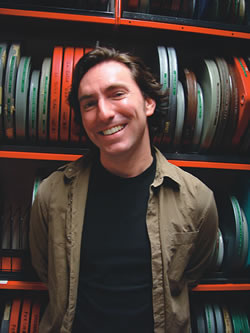 |
 |
 |
||||
 |
|
City Politics
To say that Chris Carmody ’89 has been on a roll since his senior year at Oberlin is an understatement. Beginning with “upsetting the Republicans in Lorain County” by helping to register 2,000-plus students for the 1988 national elections, Carmody, with six other Obies, next leaped into a grassroots campaign in 1989 to elect Mayor Michael White of Cleveland. A year later, Carmody himself plunged into the thick of city politics, becoming the chief implementer of White’s drive to restructure the Cleveland schools. “At Oberlin I was more of a shy person,” says the long-time Clevelander. “But while campaigning, I had to be out in front of people articulating issues, sometimes in the face of less-than-friendly crowds. It also gave me the chance to learn about the city, from its neighborhoods and very localized politics to the larger legal issues.” In 1998, Carmody combined his MBA from Case Western Reserve University with his passions for public policy and film to found the Greater Cleveland Film Commission. By encouraging the production of film and television projects in Cleveland, he and his staff of four (including Lesley Ward ’95), have brought more than $22 million to the area’s economy. “Cleveland is at a huge crossroads right now,” he says. “We can either move into a new stage of progress, or we can continue to lose business, population, and more and more services.” In January, Cuyahoga County leaders recruited Carmody to head a campaign to pass Issue 31, an economic-development and arts support levy. He recently resigned from his position on the city’s Board of Zoning Appeals, and word has it that a committee has been formed to explore his possible run for Cleveland mayor in 2005. “It’s impossible for me to live in Cleveland and not be civically involved,” he says. “If I lived somewhere else, I might be able to disengage, but wanting to change things, it’s just gotten into my blood.”
Next Page >> |
